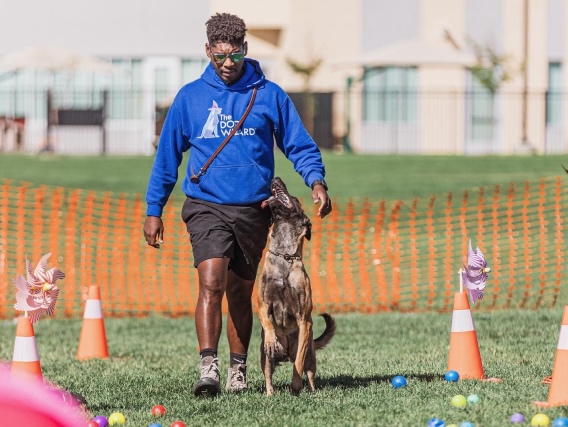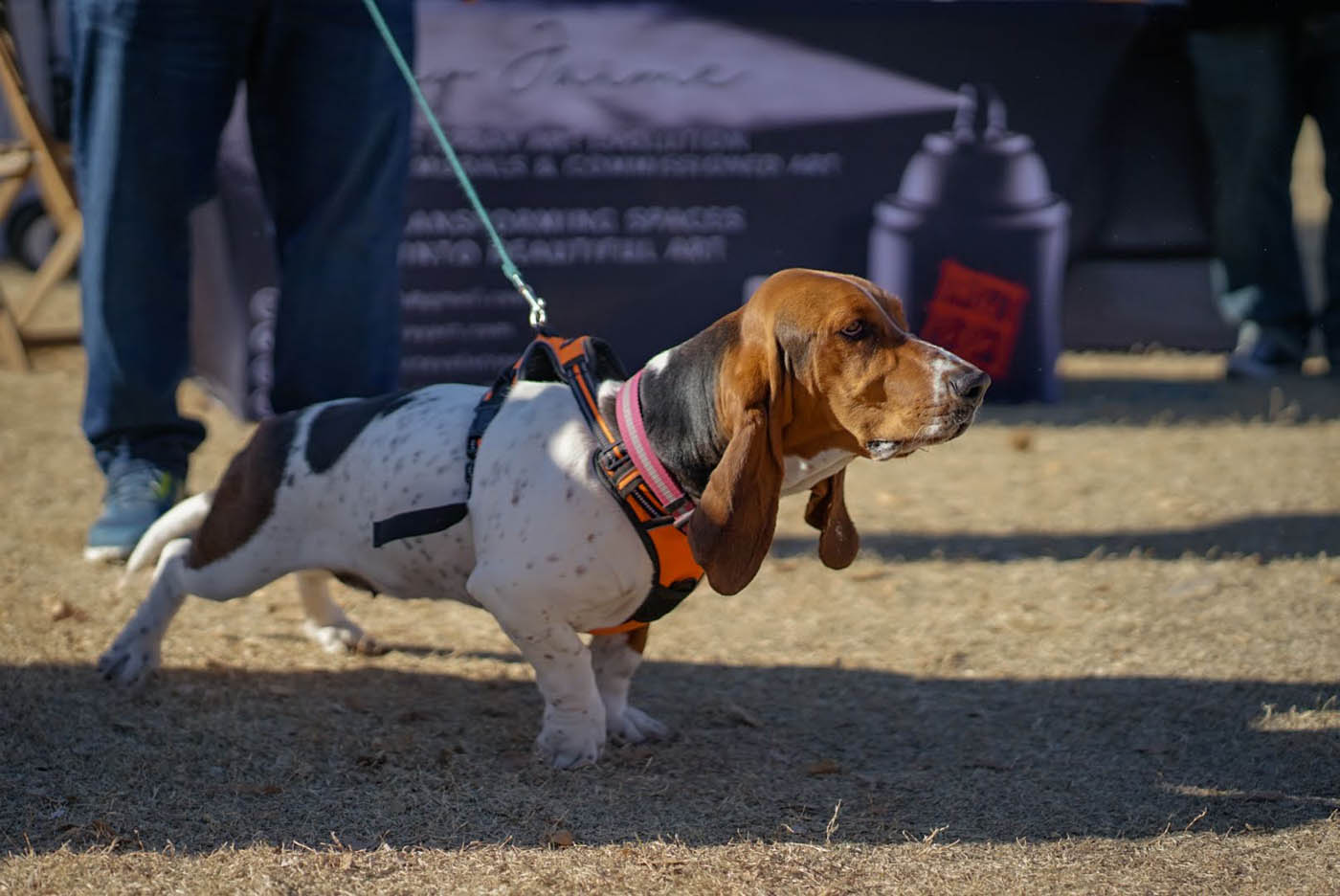Unlock Your Dog's Potential: Proven Canine Training Methods for Success
Reliable canine training is a nuanced procedure that hinges on recognizing canine habits and employing medically backed methods. By incorporating favorable reinforcement, developing clear commands, and focusing on socializing, dog proprietors can cultivate an effective relationship with their pet dogs.
Comprehending Dog Behavior
Understanding pet dog habits is necessary for efficient training and fostering a favorable relationship in between dogs and their proprietors. A comprehensive understanding of canine body language, vocalizations, and social communications is important for identifying their demands and emotions. Canines connect primarily with non-verbal cues; for instance, a wagging tail may show excitement, while pinned ears can indicate anxiety or submission.

Additionally, ecological variables play a substantial duty fit a pet dog's habits. Changes in regular, new surroundings, or the visibility of strange people can cause tension or stress and anxiety in dogs. Recognizing these triggers makes it possible for proprietors to alleviate negative reactions and develop appropriate training approaches.
Inevitably, a deep understanding of canine behavior lays the structure for effective training methods, boosting both actions and the general bond between the pet and its owner. dog training near me. This knowledge is crucial for cultivating a well-adjusted, pleased canine companion
Favorable Reinforcement Techniques
Efficient training relies greatly on positive support methods, which have actually been shown to yield substantial cause forming preferred actions in pet dogs. This approach includes rewarding a pet dog for exhibiting details habits, thereby boosting the likelihood that these habits will be repeated. Incentives can take various forms, consisting of treats, appreciation, toys, or playtime, depending upon what encourages the private pet.

It is necessary to gradually phase out incentives as the pet dog learns the actions, transitioning to recurring reinforcement. This strategy keeps the habits in time while preventing dependence on continuous rewards. By concentrating on positive support, fitness instructors can grow a trusting relationship with their pets, promoting a participating and healthy training setting that enhances total obedience and performance.
Establishing Consistent Commands
A basic aspect of successful pet training is the establishment of regular commands. Consistency in commands is critical for efficient interaction between the trainer and the pet dog. When commands are uniform, pet dogs find out to connect details words with desired habits, which accelerates the training process and boosts understanding.
To develop constant commands, it is crucial that all member of the family make use of the same terms and motions. If one person utilizes "rest" while an additional says "sit down," it can develop complication for the dog. Select clear, unique words for commands and make sure every person associated with the canine's training follows these selections.
Additionally, repeating is crucial. Enhance commands through frequent practice, guaranteeing that the pet dog obtains enough opportunities to respond correctly. When a pet dog effectively complies with a command, instant favorable support needs to adhere to. This can be in the kind of deals with, appreciation, or play, strengthening the link in between the command and the activity.
Lastly, hold your horses. Developing regular commands requires time and initiative. With commitment and clarity, you will certainly aid your pet dog establish a strong understanding of assumptions, inevitably resulting in a mannerly buddy.
Socializing and Direct Exposure
Interacting socially a canine is important for fostering a well-adjusted and confident buddy. This procedure includes subjecting your canine to a variety of settings, people, and various other pets to develop their social abilities and versatility. Early socialization, ideally in between the ages of 3 to fourteen weeks, is critical, as it prepares for a pet dog's future habits.
During socialization, goal to give favorable experiences in different setups, such as parks, hectic roads, and homes with other pets. Introduce your dog to numerous stimuli, consisting of sounds, views, and smells, making sure that each encounter is fulfilling. This exposure aids mitigate fear and stress and anxiety, paving the method for an extra durable pet.
Involving in regulated team play crate for labrador puppy sessions with various other pets can also enhance social skills, teaching your animal appropriate interactions and boundaries. Prioritizing socialization will substantially contribute to your pet dog's general joy and habits throughout their life.
Conquering Common Educating Difficulties

An additional regular concern is diversion. Dogs might battle to focus in strange or busy settings. Progressively desensitize your canine to disturbances by starting training in a peaceful setting and gradually presenting even more stimuli as they end up being proficient (dog training charlotte). Positive reinforcement strategies, such as deals with and praise, can preserve motivation and focus.
Additionally, behavioral issues like jumping or extreme barking can come to be irritating. Address these by teaching alternative habits, such as resting steadly when welcoming visitors. my site Uniformity and perseverance are crucial; reinforce desired behaviors regularly and prevent scolding, which can result in confusion.
Lastly, recognize that each canine is distinct, and animal trainer education training timelines may vary. Tailor your approach to your dog's individual needs, and look for specialist support if needed. With determination and the ideal strategies, overcoming these challenges can bring about a trained, pleased canine companion.
Conclusion
In conclusion, opening a pet's prospective requires an extensive approach that includes an understanding of canine behavior, the application of favorable support methods, and the establishment of regular commands. Early socializing and exposure to varied atmospheres even more enhance a pet's versatility and confidence. By resolving typical training difficulties with tailored approaches and persistence, a harmonious and participating connection between pet and handler can be cultivated, eventually resulting in a mannerly buddy efficient in flourishing in various scenarios.
Reliable pet dog training is a nuanced procedure that pivots on comprehending canine habits and using medically backed methods.Comprehending dog actions is necessary for effective training and promoting a favorable connection in between canines and their proprietors.Effective training depends greatly on positive support strategies, which have been revealed to generate significant outcomes in forming desired habits in pets. When commands are uniform, pet dogs learn to connect details words with desired habits, which increases the training process and enhances understanding.
In final thought, opening a dog's prospective requires a thorough method that integrates an understanding of canine behavior, the application of favorable support strategies, and the establishment of consistent commands.
 Barry Watson Then & Now!
Barry Watson Then & Now! Erik von Detten Then & Now!
Erik von Detten Then & Now! Julia Stiles Then & Now!
Julia Stiles Then & Now! Raquel Welch Then & Now!
Raquel Welch Then & Now! Ryan Phillippe Then & Now!
Ryan Phillippe Then & Now!